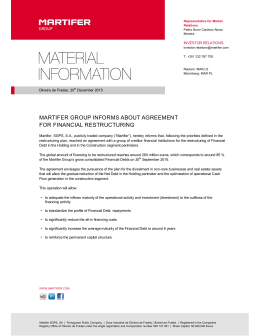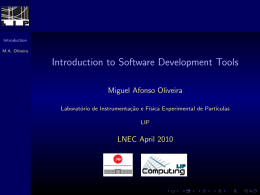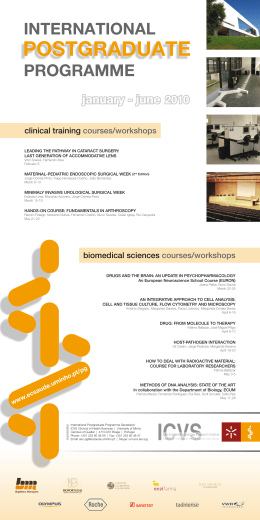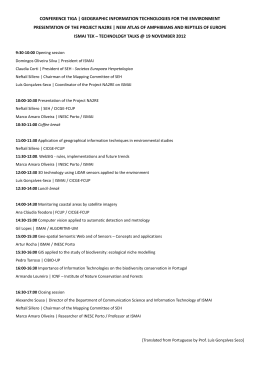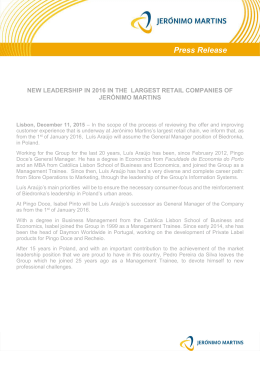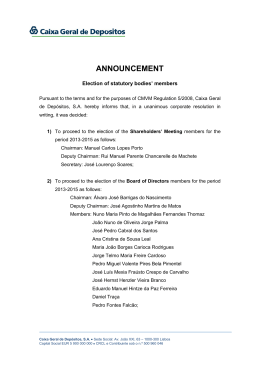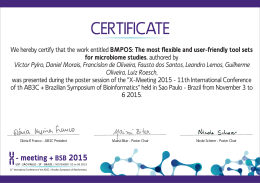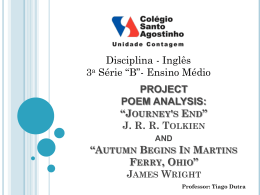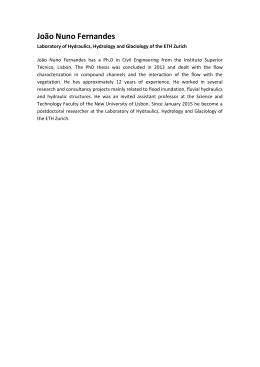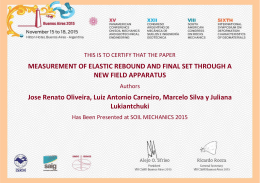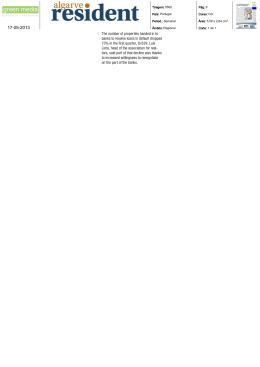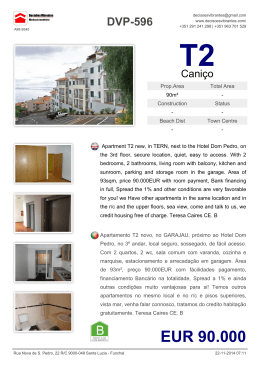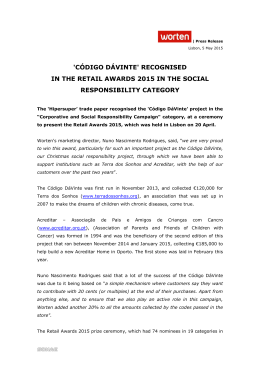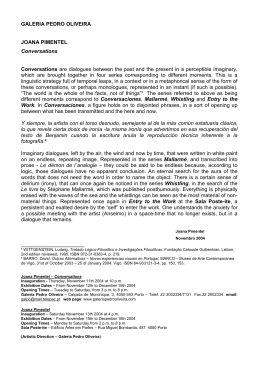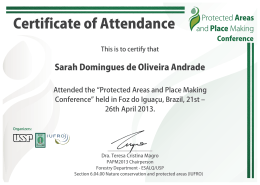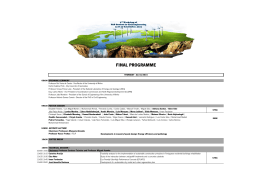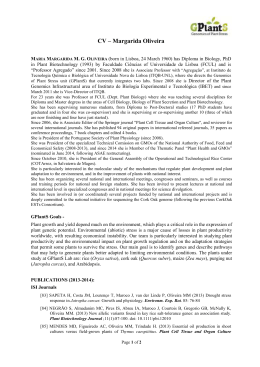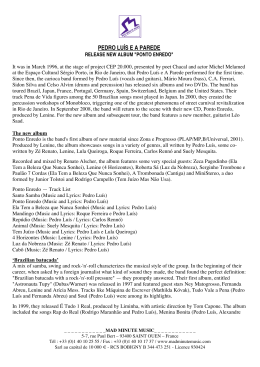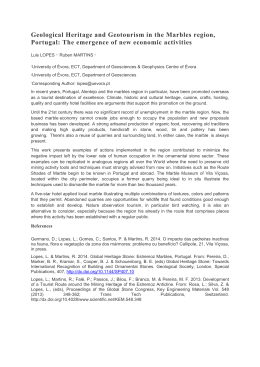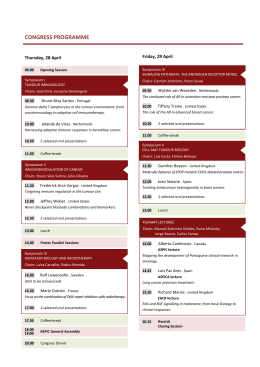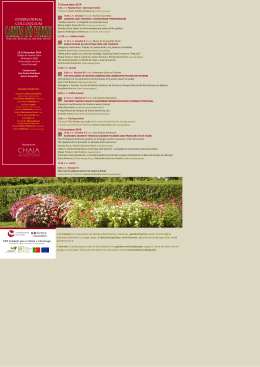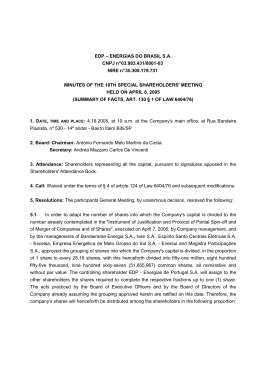International Seminar International History: State of the Art and Emerging Trends Lisbon, Institute of Contemporary History 13-14 December 2012 John Kennedy, Willy Brandt and Konrad Adenauer (West-Berlin, 26 June 1963) Convenors: Bruno Cardoso Reis (ICS-UL), Fernando Martins (CIDEHUSUniversity of Évora), Luís Nuno Rodrigues (CEHCP-ISCTE-IUL), Pedro Aires Oliveira (IHC-FCSH) Often identified with the more conservative and positivist trends in History in general, International History (a label which has the tendency to replace the classic designation of “Diplomatic History”) experienced a significant regeneration in recent decades, due to opening itself up to contributions from other areas of study. After a regenerative cycle spearheaded by figures from the French historical school, and revisionist currents from the New Left in the US, this disciplinary field was then fertilised by a dialogue established with the areas of Strategic Studies and International Relations; more recently its horizons were again widened due to the influences of “cultural studies” and currents close to the theories of late structuralism and of post-structuralism. As a result, International History has shown a notable expansion of its epistemological and methodological horizons, namely through the emergence of new themes, objects and areas of analysis. Whilst the study of more familiar dimensions of international activity (official elites and decision-making processes, forms of relationship between states, international organizations, etc.) has not been abandoned, the truth is that this is now accompanied by an increased interest in discursive, identity and symbolic aspects which express and condition the actions of the different actors present in the international arena (or transnational, considering the focus nowadays dedicated to a range of issues which go beyond the scope of states). A simple perusal of the contents of many specialist journals, or the titles of books emanating from the main publishers, shows that the possibilities offered by these new approaches are far from having been exhausted. However, whilst many have welcomed this “cultural turn” in International History, others have not and various observations from different sectors have issued forth – some questioning the originality that the new perspectives are claiming for themselves, others raising doubts on their suitability with regard to the specific nature of this sub discipline. The present seminar brings together Portuguese practitioners of the field as well as international scholars whose work has addressed the theoretical and conceptual challenges met by International History, as well as authors associated with some of the academic journals where this discussion has taken place, with a view to reflect on the recent trajectory of the subject, as well as on some emerging research trends. A final roundtable will address a matter which has hardly been considered: what is the specific relevance of similar theoretical debates for the study of small and medium powers such as Portugal, and how can such a study contribute to the advancement of the sub-discipline? Is it not the case that these debates remain excessively focused on the major powers, thus ignoring the role of numerous small states and their impact in international relations? Program 13 December 14:00 Opening remarks (the convenors) 14:30 – 15:30 Chair: Helena Pinto Janeiro (IHC-UNL) Pedro Aires Oliveira (IHC-UNL), “Waiting for the cultural turn? International History in Portuguese academia” Anais Flechet (CHCSC, Université de Versailles Saint-Quentin-en-Yvelines), “Culture and International History: French and Brazilian Perspectives” 15:30-16:00 Debate 16:00 – 16:30 Coffee-Break 16:30 – 17:30 Chair: Fernando Martins (CIDEHUS, U. Évora) Petra Goedde (Temple University, member of editorial board of Diplomatic History), “Power and Culture in International History: Reflections on a Field in Transition” Patrick Finney (University of Aberystwyth, UK), “International History and Collective Memory” 17: 30 – 18:00 Debate 14 December 9:30-10:30 Chair: Luís Nuno Rodrigues (CEHCP, ISCTE-UNL) Joe Maiolo, (King’s College, London): “Systems and the Systemic Approach to International History” Peter Jackson (University of Strathclyde, UK), “The 'cultural turn' and its discontents in the History of International Relations” 10:30 - 11:00: Debate 11:00- 11:30: Coffee Break 11:30 – 13:00: Roundtable “The role of small states in big International History” Introduction: Bruno Cardoso Reis (ICS-UL) Chair: Daniel Marcos (IPRI-UNL) Panel: Luís Nuno Rodrigues, Pedro Aires Oliveira, Fernando Martins, Tiago Miranda, Nuno Severiano Teixeira, António Costa Pinto, Ana Mónica Fonseca. The sessions will be conducted in English. Admission is Free Faculdade de Ciências Sociais e Humanas, Sala Multiusos 3, Piso 4, Edifício ID, Av. de Berna, 26 – C, Lisboa Contacts: 21 794 09 21; [email protected] Event sponsored by: Support:
Download
